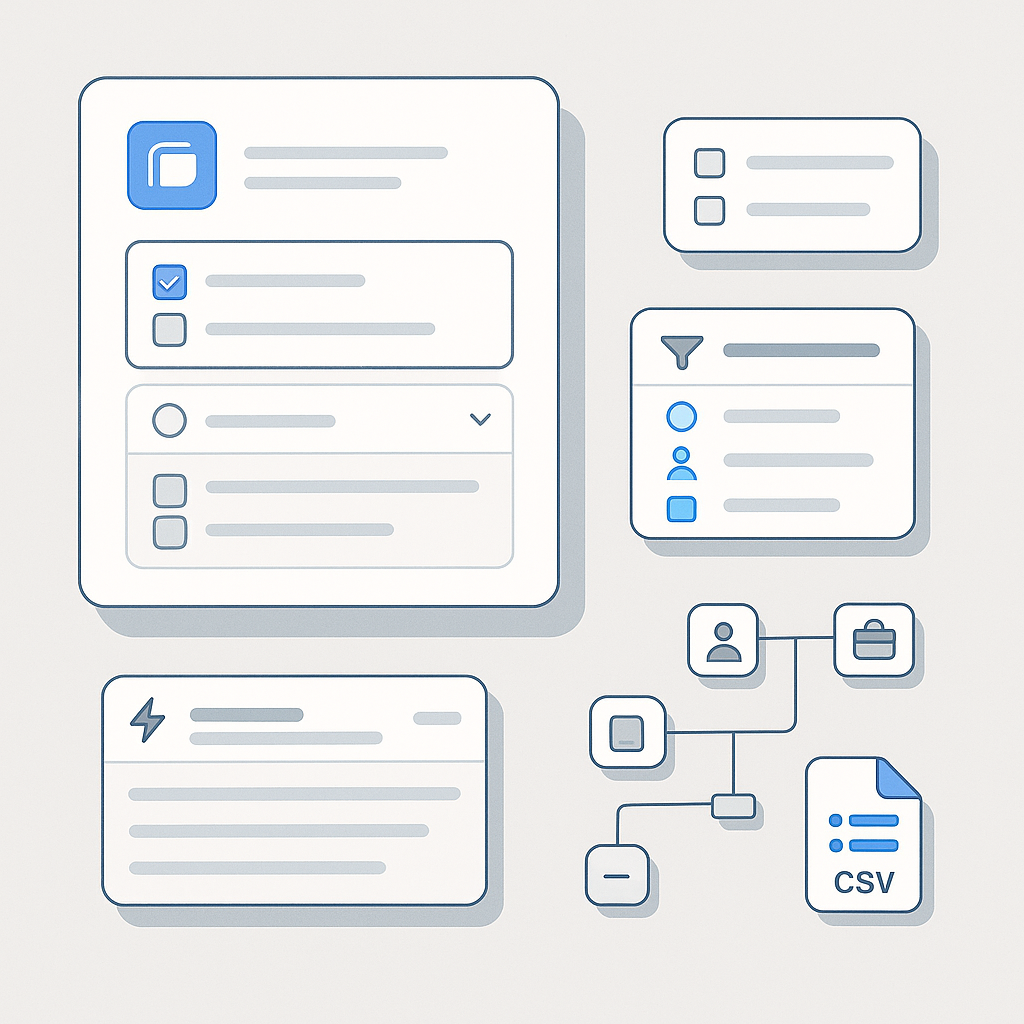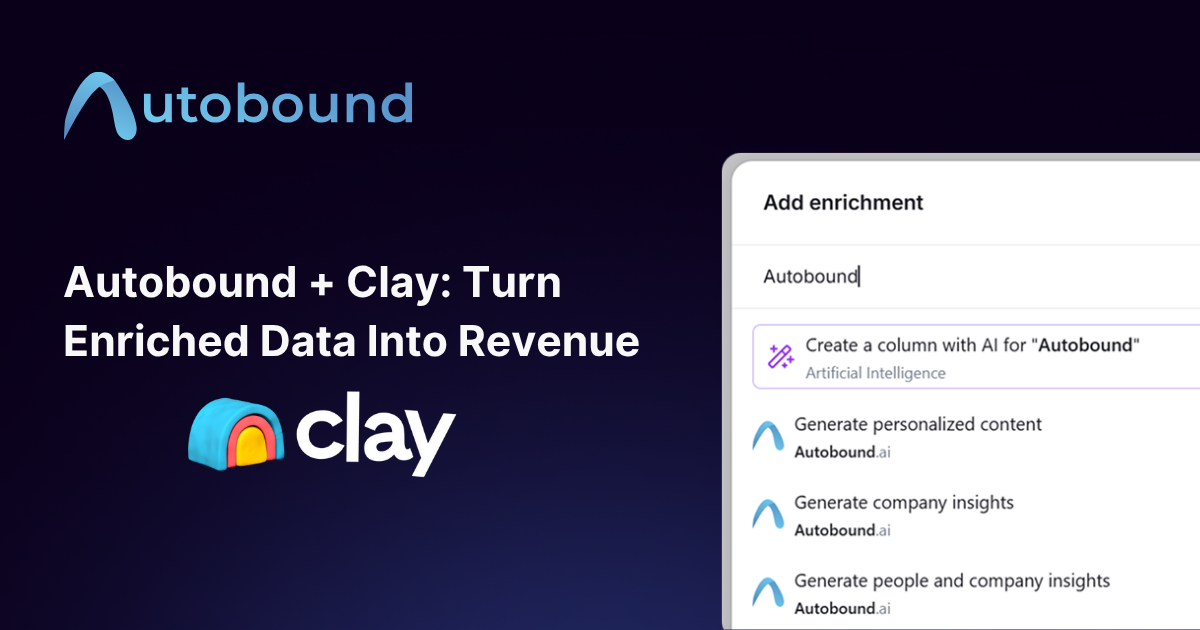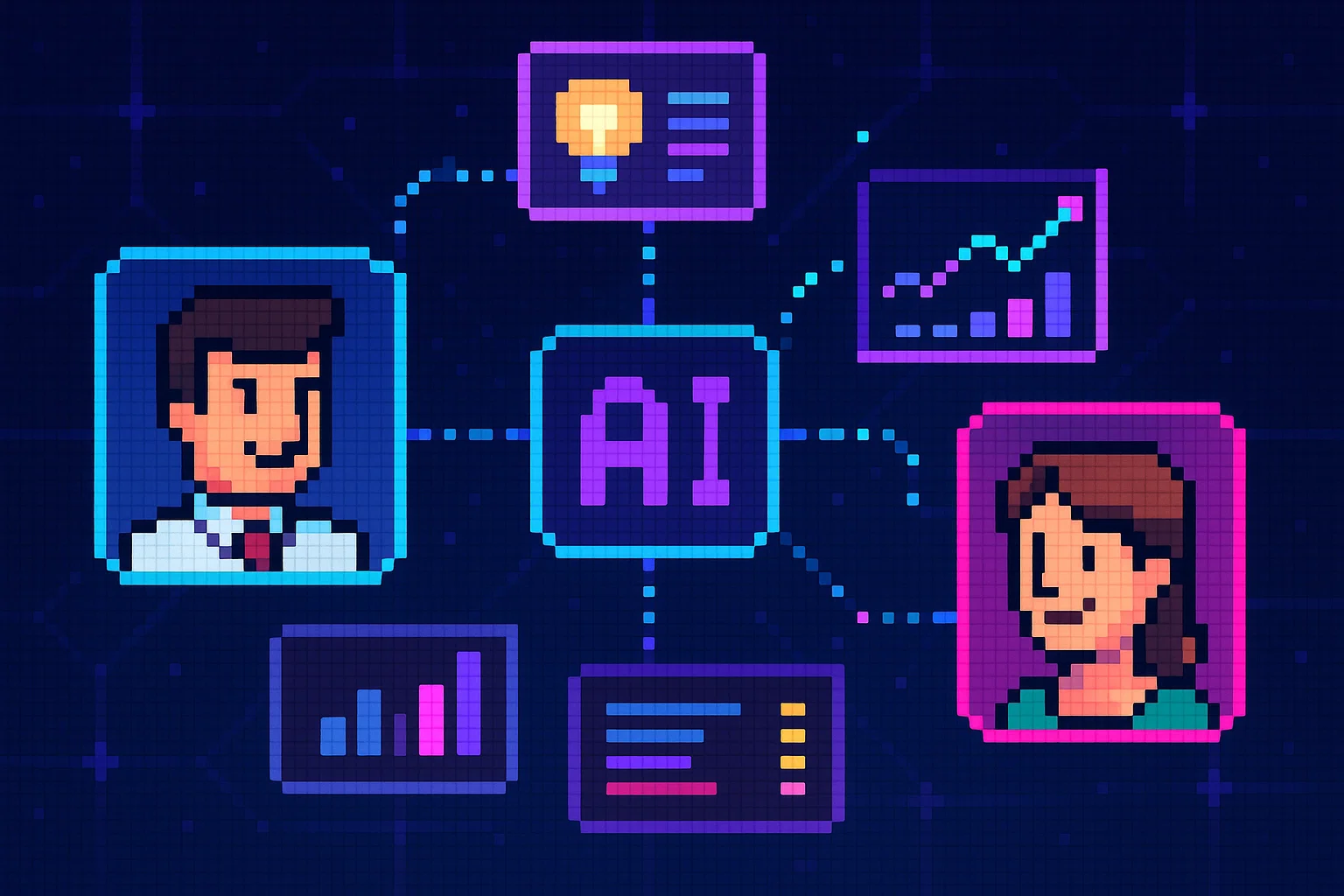Imagine this: it's Monday morning, your inbox is overflowing, and you're already drowning in tasks. Sound familiar? Now imagine you're an Agile Coach, responsible for guiding teams through the ever-changing world of software development. Suddenly, those generic sales emails feel like an attack on everything you stand for.
Agile isn't just a buzzword; it's how modern businesses thrive. Companies rely on Agile to streamline processes, boost collaboration, and deliver value faster. Businesses using Agile see a huge increase in efficiency and productivity. At the heart of this are Agile Coaches – the mentors guiding teams to a more responsive and efficient way of working.
But here's the catch: Agile Coaches are discerning. They cut through clutter and spot generic sales pitches instantly. They crave personalization, value, and a genuine understanding of their challenges. So how do you, as a B2B marketer or sales professional, break through and capture their attention? How do you create outreach that resonates and converts?
This guide is your roadmap to selling to Agile Coaches. We'll explore their mindset, uncover their pain points, and give you proven email templates and insights to transform your outreach from forgettable to fantastic. Get ready to ditch the generic pitches and embrace a more strategic, personalized approach that will have Agile Coaches eager to hit "reply."
Understanding the Agile Coach: More Than Just a Scrum Master
Before crafting that killer email, you need to understand your audience. Agile Coaches aren't just project managers with a fancy title. They're the guiding force behind successful transformations. They come in different forms – some are internal champions, others are external consultants. But they share a common goal: to empower teams to embrace Agile principles and achieve peak performance.
So, what keeps an Agile Coach up at night? Imagine trying to herd cats, each with its own agenda – that's a typical day for an Agile Coach. They're constantly juggling priorities, navigating dynamics, and striving to create an environment where collaboration thrives. They're passionate about improving team performance and delivering value faster, but they're also realists who understand that change takes time.
And when it comes to communication, Agile Coaches are all about efficiency. They value clear, concise messaging. They're allergic to jargon, skeptical of hype, and have zero patience for generic sales pitches. To capture their attention, you need to speak their language – a language of results, solutions, and tangible value.
Pre-Outreach: Research is Your Secret Weapon
With Agile Coaches, personalization isn't optional; it's the price of entry. Generic outreach won't be taken seriously. Agile Coaches can spot a mass-blast email instantly, and they'll dismiss anything that feels impersonal.
To connect with Agile Coaches, you need to demonstrate a genuine understanding of their world. This means doing your research. Think of yourself as a detective, piecing together clues to understand their motivations, challenges, and aspirations.
Start by exploring their company's website and recent news. Have they received funding? Launched a new product? These events provide insights into their priorities and challenges. Next, delve into industry trends. Are they embracing specific Agile methodologies like SAFe or LeSS? Tailoring your messaging to their chosen approach shows you understand their world.
Social media, particularly LinkedIn, is your secret weapon. What articles are they sharing? What events are they attending? What challenges are they discussing? These digital breadcrumbs reveal information about their interests, pain points, and areas where your solution can help. The more you know, the better you'll be able to craft outreach that resonates.
The Art of the Subject Line: Your 3-Second Audition
You've done your research, you understand your audience, and you're ready to write that email. But first, you need a subject line that will make Agile Coaches stop scrolling. Think of your subject line as a 3-second audition – your one chance to make a first impression.
In a world of overflowing inboxes, brevity is key. Aim for subject lines that are clear, concise, and under 50 characters. Instead of "Introducing [Your Product]," try "[Agile Coach Name], Tired of Bottlenecks? This Tool Can Help." The first is forgettable, the second is personalized, speaks to a pain point, and creates intrigue.
Numbers and data points grab attention. Instead of "Improve Team Velocity," try "Boost Team Productivity by 15%: A Case Study for Agile Coaches." Data-driven subject lines convey credibility and tap into the Agile Coach's desire for results.
Creating urgency or exclusivity can also encourage opens. Consider "Exclusive Invite: Agile Coaching Masterclass" or "Last Chance to Register: Agile Transformation Webinar." These tap into the fear of missing out.
Email Templates That Convert: From Generic to Genius
Now it's time to craft the body of your email. Agile Coaches are all about structure and efficiency, so your email should be too. A clear, concise, and value-packed message will keep them engaged.
Template 1: The Problem-Agitate-Solve Email
- Problem: Start with a relatable pain point. For example, "Are you spending more time wrangling spreadsheets than coaching your team?"
- Agitate: Dig deeper into the consequences. "Think about all those hours lost to manual reporting. Imagine what you could achieve if you got that time back."
- Solve: Introduce your solution. "Our platform automates sprint reporting, giving you real-time visibility, so you can focus on coaching."
- Social Proof: Include a testimonial. "[Product Name] has been a game-changer. I've saved countless hours and my team is more aligned." - [Name, Title, Company]
- Call to Action: End with a clear call to action. "Ready to reclaim your time and boost performance? Schedule a demo today."
Template 2: The Case Study Email
- Start with a compelling stat or insight. "Teams often lose valuable time due to inefficient communication. Addressing this is crucial for optimizing Agile workflows."
- Introduce a case study. "At [Company X], their Agile transformation was stuck. Sprints were plagued by miscommunication. Then they implemented [Your Product]."
- Highlight the results. "The result? A 15% improvement in sprint velocity and a happier, more productive team."
- Provide a call to action. "Want to see how they did it? Download the case study here."
Template 3: The News-Based Email (Time-Sensitive)
- Start with relevant news. "Hi [Agile Coach Name], I saw that [Prospect’s Company] is implementing SAFe – congrats!"
- Connect the news to your product. "We recently launched a feature designed specifically for SAFe teams..."
- Explain the benefits. "This new feature will help you [Benefit 1], [Benefit 2], and [Benefit 3]."
- Include a call to action. "We're offering a free consultation to SAFe teams. Interested?"
Template 4: The Mutual Connection Email
- Leverage your shared connection. "Hi [Agile Coach Name], I noticed we both know [Mutual Connection Name] from [Context]."
- Mention the connection's positive experience. "[Mutual Connection Name] mentioned how much they enjoyed using [Your Product] to [Benefit]."
- Highlight a relevant benefit. "I thought of you because [Your Product] can also help Agile Coaches like yourself to [Benefit]."
- Propose a quick chat. "Would you be open to a quick call next week to discuss how [Your Product] can help your team at [Prospect's Company]?"
Template 5: The Free Resource Email
- Offer a valuable resource. "Hi [Agile Coach Name], I thought you might find this free Agile Toolkit helpful."
- Describe the resource and its benefits. "This toolkit includes templates and guides to help you [Benefit 1], [Benefit 2], and [Benefit 3]."
- Include a call to action. "Download the free Agile Toolkit here: [Link to Resource]"
- Subtly connect the resource to your product. "We created this toolkit based on our experience helping hundreds of Agile Coaches achieve [Desired Outcome]."
Remember to adapt these templates to your product and target. The more personalized your emails, the better your chances of a response.
The Art of the Follow-Up: Because Timing is Everything
You've sent the perfect email, and now you're waiting for a response. But what if it never comes? Don't despair – persistence is key. Agile Coaches are busy, and sometimes emails get lost. That's where the follow-up comes in.
Following up isn't about being pushy; it's about demonstrating interest and providing value. Think of it as a friendly nudge. But remember, not all follow-ups are equal. A generic "Just checking in!" email is unlikely to work. Instead, provide value with each interaction.
Tips for crafting effective follow-up emails:
- Don't repeat yourself. Offer a different perspective, share an article, or ask a question. For example, "I recently came across this article on [Relevant Agile Topic] and thought of our conversation about [Challenge They Mentioned]."
- Use humor or a different angle. A touch of personality can go a long way. For instance, "I know you're busy, but I wanted to circle back on our conversation about [Topic]."
- Provide a low-commitment next step. Make it easy to engage. For example, "Just reply 'interested' and I'll share a relevant resource."
Measuring Success: Beyond Vanity Metrics
Agile Coaches are all about results, so your outreach measurement should be too. While open rates can provide some insights, they don't tell the whole story. Focus on metrics that indicate engagement and business impact.
Key metrics to track:
- Reply Rate: The percentage of emails that receive a response. A high reply rate suggests your subject lines are compelling and your emails are relevant.
- Meeting Booked Rate: The percentage of replies that convert into meetings. A strong meeting booked rate indicates your emails are qualifying leads and generating interest.
- Pipeline Generated: The value of opportunities added to your sales pipeline from email outreach. A healthy pipeline generated from email outreach suggests your efforts are translating into business results.
Remember, data is your friend. Use it to iterate and improve your outreach. A/B test different subject lines, content, and calls to action to see what works best. By continuously analyzing your results and making data-driven adjustments, you can optimize your outreach for maximum impact.
Conclusion: Embrace the Agile Mindset in Your Outreach
Selling to Agile Coaches requires a shift in mindset. It's about embracing agility – adaptability, collaboration, and continuous improvement. By understanding their world, personalizing your approach, and providing value, you can build relationships that last.
Remember, Agile Coaches are your allies in efficiency and innovation. By positioning your product as a solution to their challenges, you're not just selling – you're partnering with them to create a more Agile and successful future. So, ditch the generic pitches, embrace personalization, and watch your outreach soar.
About Autobound
Autobound's leading AI-powered platform delivers 350+ unique insights for go-to-market teams from financial filings, social media activity, 35 news events, competitor trends, job changes and more. Trusted by 7,000+ companies including TechTarget and validated by 220+ 5-star G2 reviews, we're unlocking hyper-personalization at scale, with native integrations for Salesloft, Outreach, and more. Leverage our developer-friendly API, try our Chrome extension, try our platform free, or contact our team to eliminate guesswork and drive measurable growth →
Built with love in San Francisco, CA




